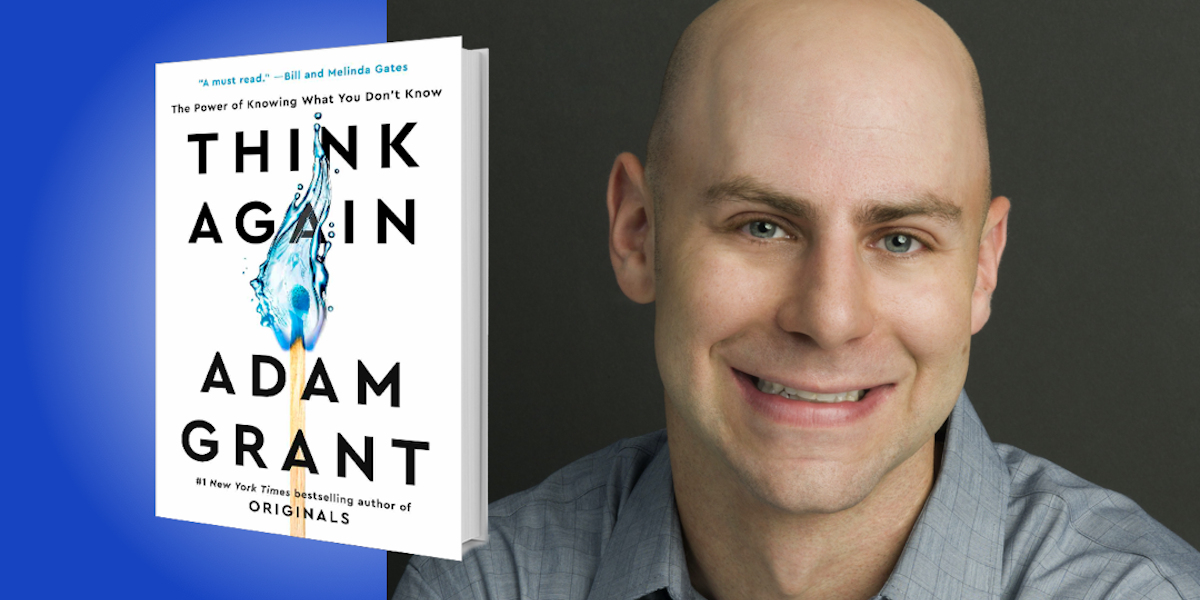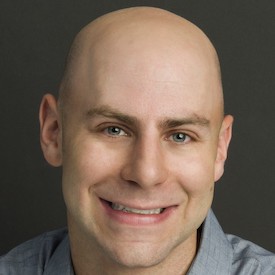Adam Grant is an organizational psychologist at Wharton, where he’s been the school’s top-rated professor for seven years running. He is the #1 New York Times bestselling author of five books that have sold millions of copies and been translated into 35 languages, and he hosts the chart-topping WorkLife podcast. He has been recognized as one of the world’s 10 most influential management thinkers and Fortune’s 40 under 40—and to top it all off, he is one of our curators here at the Next Big Idea Club!
Below, Adam shares 3 key insights from his new book, Think Again: The Power of Knowing What You Don’t Know (available now on Amazon). Download the Next Big Idea App to enjoy more audio “Book Bites,” plus Ideas of the Day, ad-free podcast episodes, and more.
1. Think like a scientist.
When people reflect on what it takes to be mentally fit, the first idea that comes to mind is usually intelligence. The smarter you are, the more complex the problems you can solve—and the faster you can solve them. Intelligence is traditionally viewed as the ability to think and learn. Yet in a turbulent world, there’s another set of cognitive skills that might matter more: the ability to rethink and unlearn.
To master those skills, it helps to think like a scientist. Thinking like a scientist is a frame of mind—having the humility to know what you don’t know and the curiosity to find out more. It requires searching for reasons why you might be wrong—not for reasons why you must be right—and revising your views based on what you learn. When you’re thinking like a scientist, you don’t let your ideas become your identity. You listen to ideas that make you think hard, not just the ones that make you feel good. You surround yourself with people who challenge your thought process, not just the ones who agree with your conclusions. And you anchor your identity in mental flexibility rather than foolish consistency.
2. Open other people’s minds.
When we debate our friends, family, and colleagues, we tend to think the key to victory is to go into battle armed with airtight logic and rigorous data. But debating is not war. It’s more like a dance. Admitting points of convergence doesn’t make you weaker—it shows that you’re willing to negotiate about what’s true, and it motivates the other side to consider your point of view.
“When you’re thinking like a scientist, you don’t let your ideas become your identity.”
Consider the findings of a classic study that examined what expert negotiators do differently:
- First, they spend more than a third of their planning time looking for areas of agreement, mapping out a series of dance steps they might be able to take with the other side.
- Second, they actually present fewer points to back up their case—they don’t want to dilute their arguments.
- Third, they avoid going on offense or defense. Instead, they rely on curiosity asking questions like, “So you don’t see any merit in this proposal at all?”
- And fourth, they’re not afraid to share their feelings and test their understanding of the other side’s feelings.
If we approach an argument as a war, there will be winners and losers. If we see it more as a dance, we can begin to choreograph a way forward. We have a better chance of finding a rhythm.
3. Complexify the world.
There’s a basic human tendency to seek clarity and closure by simplifying a complex continuum into two categories. Psychologists call it binary bias. An antidote is complexifying: showcasing the range of perspectives on a given topic. We might believe we’re making progress by discussing a hot-button issue as two sides of a coin, but people are actually more inclined to think again if we present these topics through the many lenses of a prism.
It helps to remember that we can fall victim to binary bias with emotions, not only with issues. Just as the spectrum of beliefs on charged topics is much more complex than two extremes, our emotions are often more mixed than we realize. If you feel wronged by someone with a different set of beliefs, you can be simultaneously angry about your past interactions and hopeful about a future relationship. Complexifying can be useful in the workplace, too, encouraging us to ask questions that challenge the status quo. And you can even try it at home. Consider setting aside time every week to assess how your beliefs are evolving, or to ask your friends and family what they think you should be reconsidering.
For more Book Bites, download the Next Big Idea App:

































